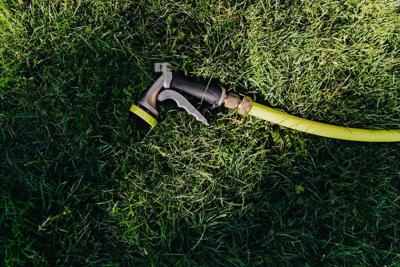
Garden hoses are an essential tool for any gardener or homeowner. They're versatile, easy to use, and can help keep your plants healthy and your lawn looking lush, adding to the aesthetics of your home. However, like any other tool, they can pose certain security risks if not used properly. To avoid such hazards, it is imperative to select a reputable hose brand, as opting for high-quality hoses remains paramount in mitigating these risks. By far, the most efficient way to avoid such hazards and ensure operational integrity is by diligently choosing a hose store committed to precision engineering and stringent quality standards. This article will discuss this solution, as well as other garden hose hazards and additional ways to avoid them.
Tripping
One of the most common hazards associated with garden hoses is tripping. Garden hoses can easily get tangled or kinked and become a tripping hazard for all passers-by. To avoid this hazard, it is important to properly coil and store your garden hose when not in use. You can also buy a hose reel, which will keep your hose tidy and out of the way.
Water Pressure
Another common hazard associated with garden hoses is water pressure. When a garden hose is turned on, water pressure can build up quickly and the hose can whip around uncontrollably. This can be dangerous, especially if the hose hits someone or something. To avoid this hazard, it is important to turn off the water source before attaching or detaching the hose. You should also release the pressure that has built up in the hose before storing it.
Harmful Chemicals
One of the most common hazards associated with garden hoses is exposure to harmful chemicals. Many garden hoses contain materials such as lead, cadmium, and phthalates that get into the water and can pose a health risk if ingested. To avoid this hazard, it's important to purchase a garden hose that's labeled potable safe.
Puncture and Leaks
Another common hazard associated with water hoses is punctures and leaks. A punctured or leaking garden hose can cause water damage to your home or property. To avoid this hazard, it is important to regularly inspect your garden hose for signs of wear. You should also avoid dragging your garden hose over rough surfaces or sharp edges, which can cause holes and leaks.
Garden Hose Safety Tips
Now that we've discussed common garden hose hazards, let's take a look at some garden hose safety tips.
Choose the right hose
When purchasing a garden hose, it is important to choose one that suits your needs. Consider the length, diameter and material of the hose. Make sure the hose is labeled safe for drinking water if you intend to use it to water plants you plan to consume.
Store your hose properly
Proper storage is key to avoiding garden hose hazards. Always coil your hose neatly and store in a dry, cool place when not in use. If you don't have a convenient place to store it, consider purchasing a hose reel.
Check your hose regularly
Regularly inspecting your garden hose can help you identify potential hazards before they become a problem. Look for signs of wear, holes and leaks. Replace your hose if you notice any of these problems.
Turn off the water source
Always turn off the water source before attaching or detaching your garden hose. This will prevent water pressure from building up and spinning the hose around.
Relieve pressure before storing
Before storing your garden hose, be sure to release any pressure that has built up. This will prevent the hose from banging around when you turn the water source back on.
Be careful with hot water
If you want to use hot water with your garden hose (e.g. to wash your car), make sure you use a hose that is specifically designed for use with hot water. Hot water can damage a regular garden hose and also cause burns or scalds.
Appropriate footwear
When using a garden hose, it is important to wear sturdy, closed-toe shoes. This protects your feet from possible tripping hazards such as kinked or tangled hoses.
Conclusion
In conclusion, garden hoses are a valuable tool for any gardener or homeowner. However, they can pose certain security risks if not used properly. By following the tips outlined in this article, you can avoid common garden hose hazards and ensure that your garden hose is a safe and effective tool for years to come.
Here are Some Other Articles Related to Your Search:
How to Make Your Outdoor Space Safer for Kids
Garden Tools! Everything you need, to have a beautiful Garden!



(0) comments
We welcome your comments
Log In
Post a comment as Guest
Keep it Clean. Please avoid obscene, vulgar, lewd, racist or sexually-oriented language.
PLEASE TURN OFF YOUR CAPS LOCK.
Don't Threaten. Threats of harming another person will not be tolerated.
Be Truthful. Don't knowingly lie about anyone or anything.
Be Nice. No racism, sexism or any sort of -ism that is degrading to another person.
Be Proactive. Use the 'Report' link on each comment to let us know of abusive posts.
Share with Us. We'd love to hear eyewitness accounts, the history behind an article.